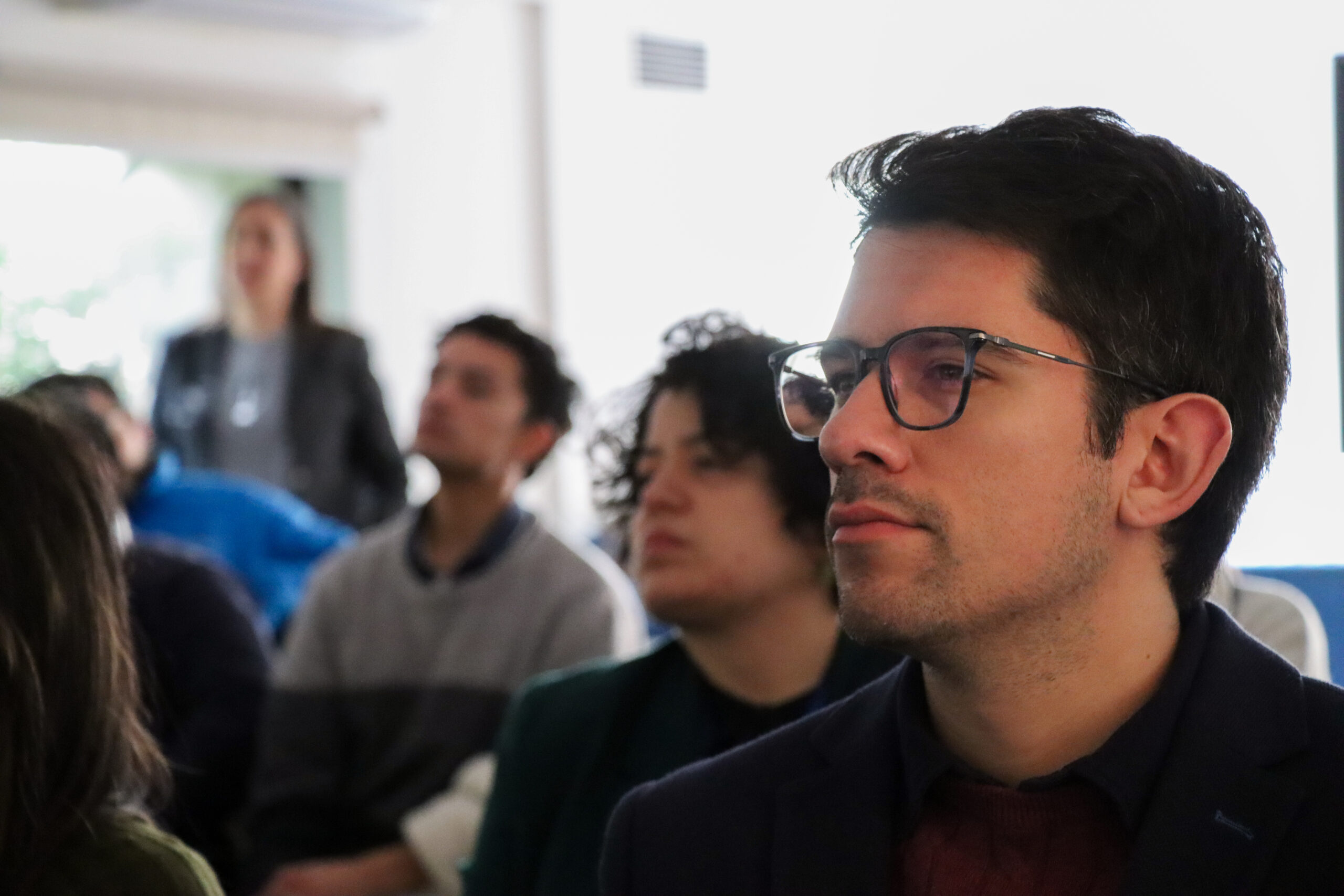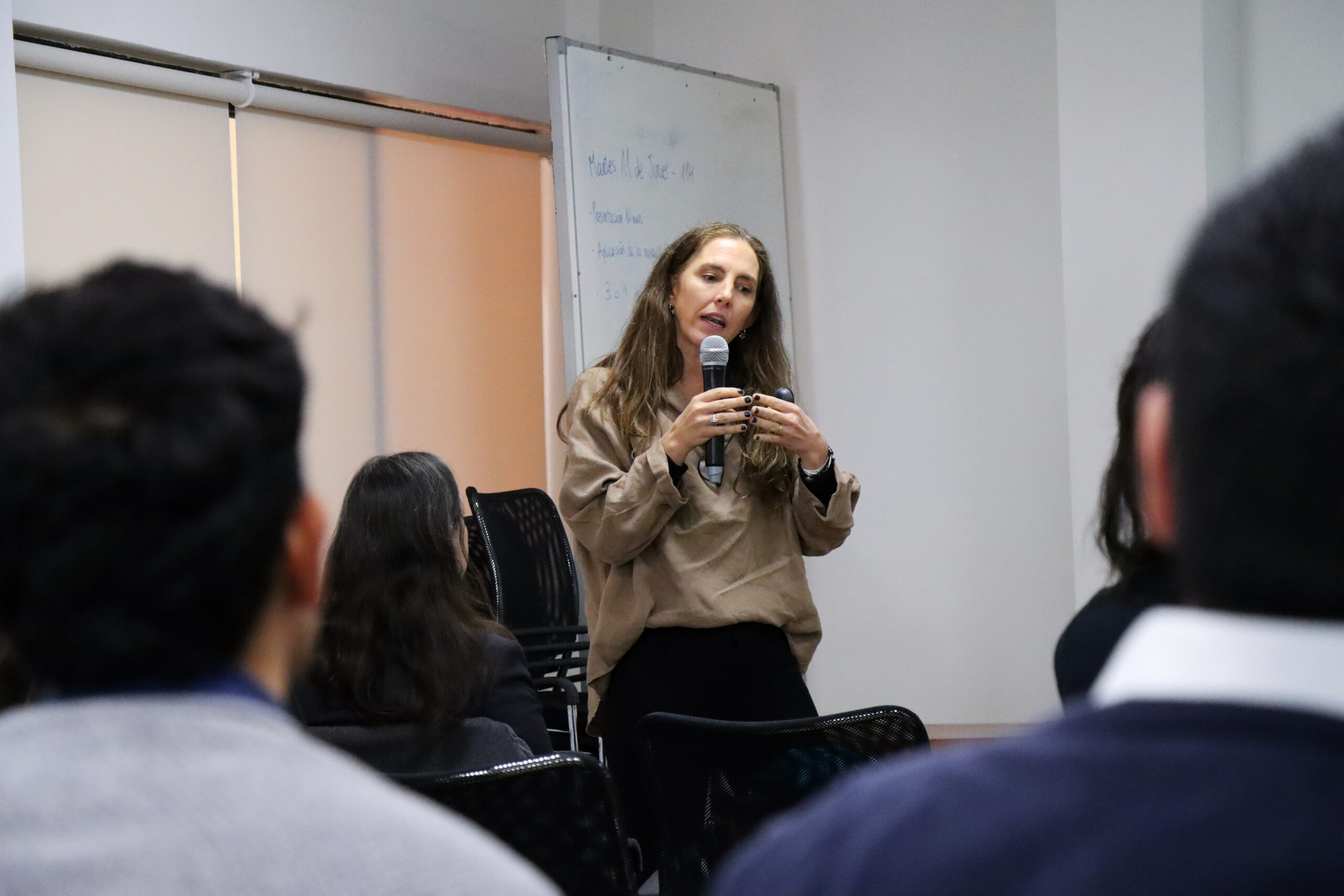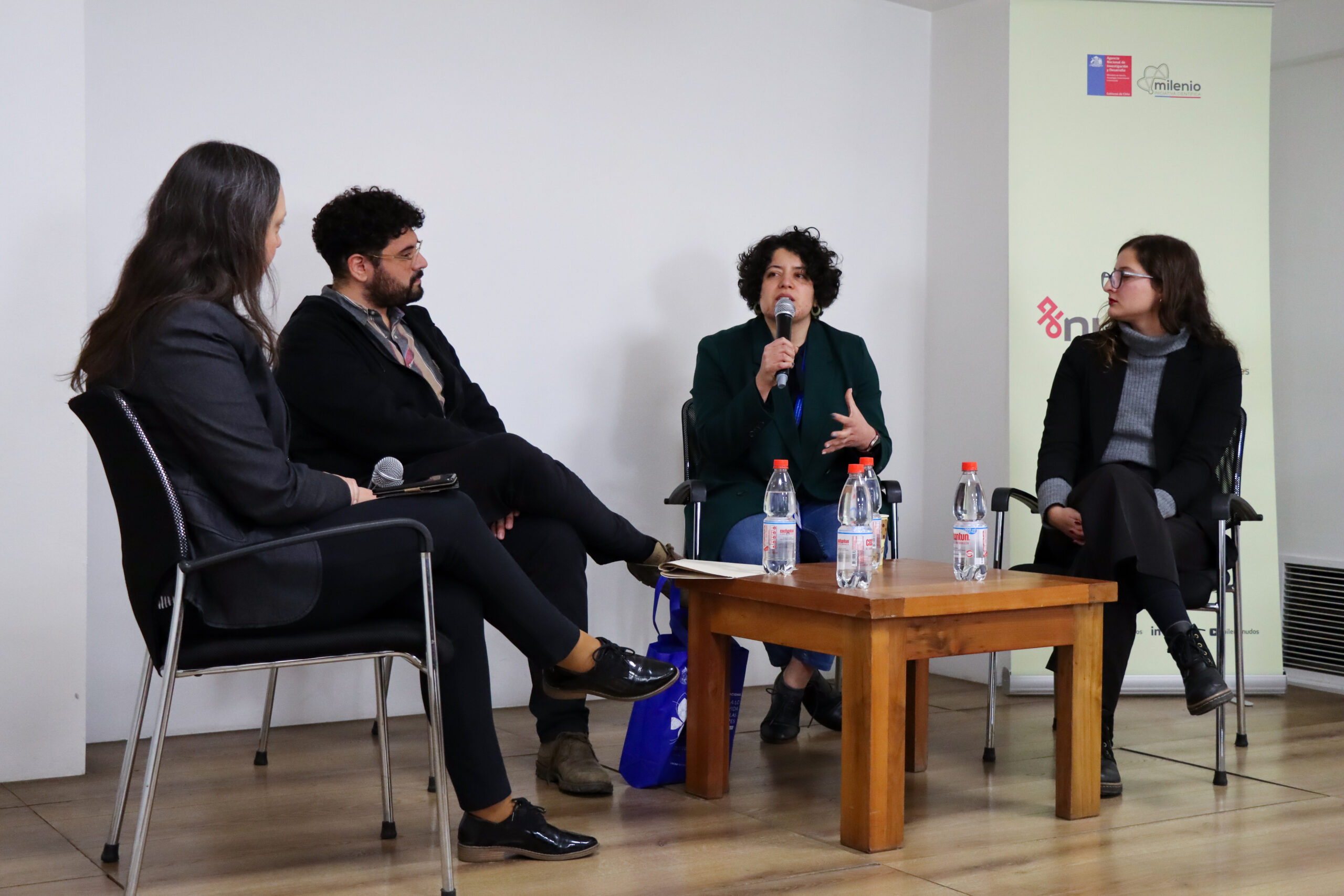Event “Digital challenges in the field: inequality and misinformation among seniors”
Last Friday, May 17, on World Internet Day, the Millennium Nucleus on Digital Inequalities (NUDOS) held an event to discuss the digital inequalities faced by older people in the country.
During the event, a video of the misinformation workshops held during the summer was shown, relevant data on digital inequality in the elderly was shared and a space was created for discussion among different actors to reflect on these issues. Alonso Calderón from the Centro UC Estudios de Vejez y Envejecimiento (CEVE UC) and Javiera Sanhueza from the Servicio Nacional del Adulto Mayor (SENAMA) participated in the discussion table.
The event was opened by the director of NUDOS, Ingrid Bachmann, who presented the work being done by the Millennium Nucleus in its three policy lines; social, political and informative. Afterwards, the academic gave the figures of the workshops to identify scams and misinformation, such as that the average age was 72.6 years old and 76% were women. In total, there were 156 attendees among the six workshops.
After the director’s presentation, the video compilation of the workshops was shown, where you can see the reflections of some of the attendees. You can watch the video below.
Thirdly, the alternate director of NUDOS and co-author of the Digital Inclusion Study 2023, Teresa Correa, presented some of the data collected in the study related to the digital inequality faced by the elderly. Below are some of the data presented by the researcher:
– Operational and navigational skills: About 80% of people over 60 do not know how to download a photo they found on the Internet, open a file on the computer, open a new page in the browser, create an account on a social network and bookmark an Internet page that is of interest to them.
– Critical-evaluative skills: About 80% of people over 60 do not bother to check the reliability of a website or to contrast the information they find on a website with a different one.
– People over 60 are much more dependent on outside help. Seventy percent said that, if they have problems using the Internet, they never think they can solve them on their own. This figure drops to 14% between the ages of 14 and 30 and to 24% between the ages of 31 and 45.
Finally, the discussion table debated the challenges and opportunities that digitalization has for older people. Javiera Snahueza, from SENAMA, commented on the progress made by the State and Alonso Calderón gave an overview of the work done by the CEVE UC.








